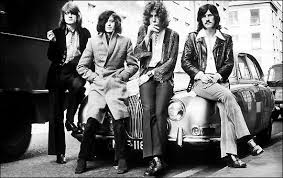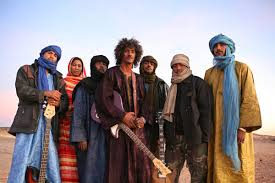No Quarter originally referred to a pirate phrase that meant to show no mercy on the seas. The term was eventually applied to an English law during the Revolutionary War stating that colonial Americans had to offer British soldiers quarters (food and rest) or suffer the consequences of bodily harm or possibly death. “No Quarter” for me, however, always conjured up the unnerving tolling of a somber bell; a ghostly warning issued by John Paul Jones on his piano. The ominous knell was followed by Robert Plant’s shadowy admonition to “close the door, put out the light.” Once inside I could hear the icy winds of Thor blowing cold on an eerily dark, moonlit Winter night. Again the spectral call of Jones’ piano, beckoning and strengthened with John Bonham’s march like drum beat. Finally the climax of Jimmy Page’s shrieking guitar solo sweeps the door allowing the the wind blown snow and the pacing “dogs of doom” to enter. “No Quarter” is pure aural magic for it sets a mood like few other songs have in the history of rock. It is a musical nightmare describing the the horror of isolation during a snowstorm charged with a sense of defenselessness and impending doom. “Walking side by side with death
The devil mocks their every step
The snow drives back the foot that’s slow
The dogs of doom are howling more
They carry news that must get through
To build a dream for me and you
They choose the path that no one goes
They hold no quarter,
They ask no quarter”







